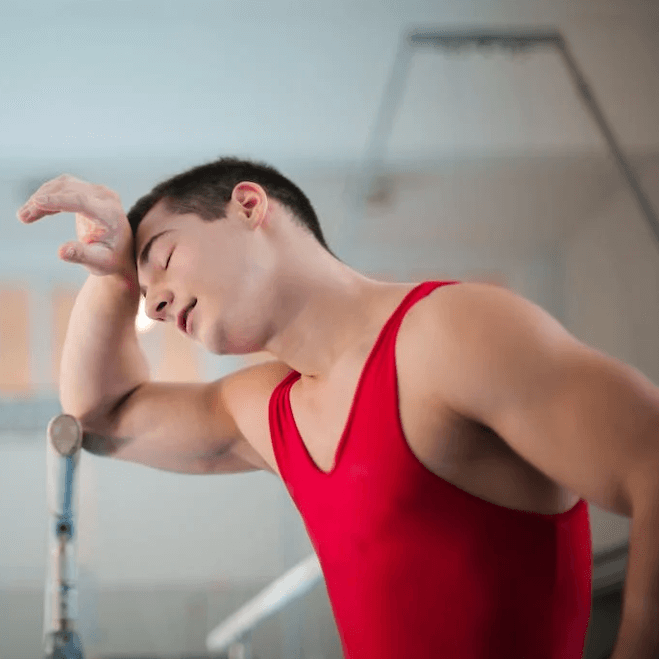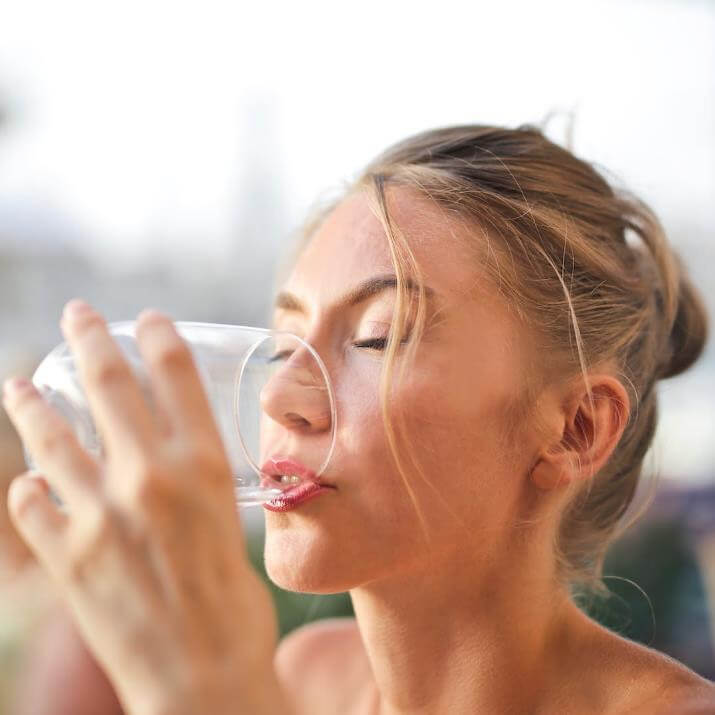Hydration is an important part of staying healthy and energetic. With exercise, it becomes even more necessary to ensure that we stay properly hydrated. It is essential before, during, and after workouts. Improper hydration can result in fatigue, headaches, fainting spells, muscle cramps, and heat exhaustion. In extreme cases, it can cause life-threatening conditions like hyponatremia (water intoxication). To keep your energy up and ensure you are optimizing your workout routine try to pay closer attention to drinking the right amount of water during your exercise session.
Studies
indicate that the average person should drink about 0.5 liters of water for every hour they work out – provided they don’t lose more than 2% body weight due to sweat loss caused by heavy physical activity. Even though this seems like a lot of water it’s important that you monitor how much moisture you’re taking in because too little or too much can both be problematic. Furthermore, there are additional factors such as climate and diet which may also affect one’s hydration needs. For example, if it’s hot outside then one would likely need to drink more than when exercising on a chilly day.
In this article, we will explore the importance of proper hydration during exercise along with discussing how much water is enough for our workouts so that we are well-prepared before heading off to our next gym session.
Why Is Hydration Important in Exercise?

The human body is made up of between 50-75% water and therefore it is often referred to as the “water of life”. During physical activity, your body loses fluid through sweat and respiration which need to be replenished to ensure proper hydration levels. Even mild dehydration can affect physical performance as recent studies demonstrate that just a 1-2% decrease in muscle glycogen can result in an 8% decrease in one’s strength. Additionally, hydration helps to regulate core temperature so that overheating does not occur when we exercise. If the body gets too hot then cramping, dizziness, palpitations, irritability, and lightheadedness are all common symptoms one might experience.
Also,
electrolytes
are lost during heavy physical activity and these should also be rehydrated if one wishes to remain at peak performance levels. Fluid replacement with electrolyte-rich fluids such as sports drinks can help keep the sodium and potassium balance of the muscles steady allowing optimal control over movement patterns as well as aiding recovery after long periods of exercise. Therefore paying close attention to how much water we drink along with replenishing lost sugar and sodium during workouts can ensure the best possible results from our gym sessions.
What Should My Hydration Strategy Be Before a Workout?
It is recommended that around 400-600 ml of water should be consumed 1-3 hours before exercise, in order to optimize your body’s hydration levels. This should be accompanied by snacks and drinks that are dense in electrolytes. Coconut water, Powerade, or Gatorade are all great beverages to help replenish the electrolyte balance your system needs to perform at its peak capacity.
The idea is to ensure that pre-workout you have both fluid and electrolytes on board as well as good snacks which will help give your energy levels the boost they need for maximum intensity during the activity ahead.
Studies
demonstrate starting a workout in a “hyperhydrated” state can impact performance positively. Therefore it’s important that we pay attention to whether or not we are properly hydrated even before we start our exercise session.
How Should I Stay Hydrated During a Workout?
Once you have started your workout, the key to staying hydrated is to sip small amounts of water every 10-15 minutes instead of gulping it down too quickly. For most individuals, this should be around 150-350 ml of water per hour. Avoiding
dehydrating beverages
like sugary sports drinks and coffee can also help as caffeine is a diuretic which results in fluid loss while also increasing the rate at which your body will sweat – leading to even higher fluid needs during exercise. Some other tips include drinking chilled water or adding stuff like cucumber or fresh lemon wedges to make it more palatable.
It is also important not to overhydrate when exercising as this can lead to electrolyte imbalances and hyponatremia, a potentially fatal condition caused by an imbalance in salt levels in the blood. The best way to ensure that your hydration needs are met properly is by weighing yourself before each workout session so that you can ascertain how much weight has been lost through sweat and adjust your water intake accordingly.
Also, it is necessary to drink after 5-15 minutes of rest after intensive activity. You should NOT drink water when you have a high heart rate, due to it damaging your cardio system over time.
What’s the Best Way to Rehydrate After Exercise?

Once you finish your activity it’s also important to rehydrate in order to get all of the lost electrolytes back into your system. Drinking about 400-700 ml of sports drinks can help replenish lost electrolytes as they contain 12-17% sugar which helps your body absorb and use water more efficiently. Eating snacks that contain potassium, magnesium, calcium, and carbohydrates like bananas, kale chips or nuts can also help with restoring optimal levels within the body. Taking a protein shake or eating a piece of fruit that contains natural sugars like dates, oranges or grapes are other great options for post-workout refueling too.
Finally, it is always best practice to track how much water and electrolyte drinks you consume during a workout session. The optimal amount varies with each individual so if
weight gain
or
loss
occurs it’s better to know exactly how much was consumed so that appropriate adjustments can be made in the future since excessive hydration may not always be beneficial for long-term health outcomes.
Are There Individual Differences in Hydration Needs During Exercise?
Yes, there are individual differences when it comes to hydration, and they can be quite significant. Depending on one’s body size, activity levels, climate, and genetics everyone will have slightly different amounts of fluids and electrolytes they need to stay properly hydrated during a workout session. To complicate matters further athletes tend to sweat at different rates, with some losing more weight from sweat than others – making accurate guesswork nearly impossible when trying to figure out the exact proportions one needs for their own workouts.
There is a
common
calculation of water daily consumption and it is 25-35 ml of water per kg of body weight, depending on activity. The daily consumption should be done during the day, not like “forgot to drink in the day, therefore I would drink 2 liters at once before night”.
Furthermore, health conditions such as diabetes increase the risk of dehydration which then requires even greater caution when considering hydration needs during exercise.
Therefore it is always best practice that individuals pay attention to their body’s own feedback mechanisms so that any symptoms such as lightheadedness or fatigue can be detected and dealt with swiftly in order to avoid any long-term health issues due to inadequate hydration. In cases like this consulting a healthcare professional might also be beneficial for reaching optimal levels of performance during physical activity.
What Are Some Common Myths About Hydration and Exercise?
There are several common myths about hydration needs during exercise that are important to address. Firstly it is not true that one should be drinking eight cups of water per day as this amount may be insufficient for those with active lifestyles. Furthermore, the notion of downing a huge bottle of water right before a workout is also inaccurate, because it can cause bloating in some individuals due to drinking too much too quickly.
Additionally, advertisements promoting sports drinks as essential for any athlete are misleading, since even plain water can do the same job if consumed in the proper proportions correctly – although they are useful for rehydration after long or intense workouts. Also gels and bars claiming to replace lost electrolytes have been found by researchers to actually increase dehydration during extended exercise sessions – caution should always be exercised when using artificially enhanced products like these.
Dehydration signs

It is highly recommended to immediately start
rehydration protocols
if you have one or some of these signs.
1) Thirst
Feeling thirsty often means that your body already has low water levels. So if by noon you’re suddenly overcome by a strong craving for water, this is a sign that you’ve begun to feel dehydrated.
2) Headaches
When dehydrated, blood volume goes down which can lead to low blood pressure levels. This reduces oxygen supply which leads to feeling lightheaded or having headaches during activities like exercise which increases your heart rate and causes you to sweat more than usual.
3) Dry Skin & Mouth
Nearby sweat glands aren’t supplying enough moisture to keep the skin supple while a decreased production of saliva may cause dry mouth as well as embarrassing bad breath accompanying it. And do not forget about chapped lips!
4) Muscle Aches & Cramps
When water losses become too significant muscle cells deplete their carbohydrate fuel quickly leading to muscle fatigue and aches that could have been easily prevented by drinking more before exercising or through rehydrating during breaks from activity with frequent beverages containing electrolytes such as sports drinks or fortified waters. This will also help prevent painful cramps due to electrolyte deficiencies in particular sodium and potassium imbalances related to dehydration.
5) Excessive Sweating & Low Urination Output
As mentioned previously, intense physical activity leads us into perspiring but if we’re losing much more than we take in through refilling our liquid supplies then this can cascade into other symptoms farther down the line such as dry skin incapacity sweating additionally if urinations output volume decreases after an extended period time particularly boiling particularly hot climates then chances are there that there are already beginning stages dehydration present within your body.
Key Takeaways
Water is essential for our health and well-being. When exercising, it becomes even more important to ensure that the right amounts of fluids are taken in. Studies indicate that 150-350 ml of water per hour exercised should be optimal for most individuals – although other factors such as climate and activity levels can play a role too. The common advice is to target 25-35 ml of water per kg of body weight daily. Mentally note down individual differences such as sweat rate and energy levels when considering hydration needs during exercise so that adjustments can be made if necessary – especially since excessive hydration may also result in numerous adverse outcomes.
Finally, beware of common myths about hydration which might lead to inadequate or excessive hydration, affecting one’s performance as well as health in the long run.

 By myulikeadmin
By myulikeadmin



